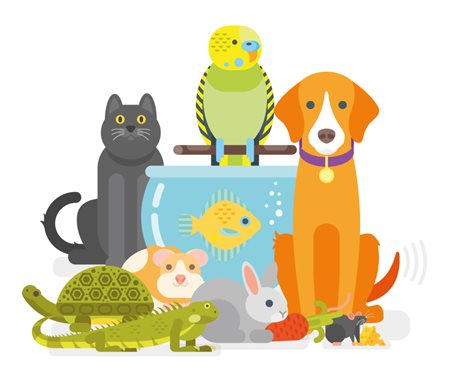Pet Advice
Pets are an important part of family life and so it is essential that you include the care of pets in your planning too. For example, if you are evacuated from your home, it is likely you will want to take your pet along with you.
 Before an emergency
Before an emergency
In case the rest centre will not accept your pet, we recommend you create a list of pet boarding shelters that will work for both you and your pets during an incident.
Consider family and friends outside of your local area that would be willing to host you and/or your pets in an emergency. Make sure your pets are regularly vaccinated as some animal boarding facilities will want to check this before accepting pets. It is a legal requirement to microchip your dogs, be sure to keep the chip number safe with the associate mobile number up to date.
Preparing a Pet Grab Bag will ensure all medication, documents and food for your pet are easily at hand in case of emergency.
During an emergency
Emergency Responders are likely to be inundated, with requests to help or rescue people for some time before considering looking for pets, as human life is their priority. Never leave your pets at home unless there is no other option. If you have to leave your pet at home, ensure they are in a safe room with 5 days of dry food and water.
If it doesn’t put you in danger, put your pets in a carrier or on a leash and collect your Pet Grab Bag.
Should a large number of people be evacuated, the Local Authority will open a rest or reception centre. We will try to accommodate pets as far as reasonably practicable at an emergency reception centre although this is not always possible. Each Local Authority has its own policy on accepting pets at Rest Centres so it is worth checking with them for more information. You will be responsible for your pets’ welfare and cleaning up after them. The Local Authority holds a list of animal boarding facilities, within Staffordshire, to assist in an emergency if you have no identified these yourself.
If accommodations are needed for you pet(s):
- Contact local vets, boarding facilities, and local animal shelters.
- Contact family or friends outside the evacuation area.
- Contact a pet-friendly hotel, particularly along evacuation routes.
- Make plans before an emergency for where you and your pets will go. Be aware that pets may not be allowed in local human shelters, unless they are service animals.
Pet Grab Bag
If you are evacuated without warning, try to bring the minimum with you:
 Spare food and a food bowl
Spare food and a food bowl
 Suitable carriers for small animals, birds in a secure cage and dogs using sturdy leashes
Suitable carriers for small animals, birds in a secure cage and dogs using sturdy leashes
 Pet medications
Pet medications
 Plastic bags for any waste
Plastic bags for any waste
If you are evacuated with warning, attempt to bring the following with you:
 Spare food and a bottle of water
Spare food and a bottle of water
 Food and water bowl
Food and water bowl
 Pet medications
Pet medications
 Pet litter, paper towels, plastics bags for waste
Pet litter, paper towels, plastics bags for waste
 Collar and leash, carriers and cage
Collar and leash, carriers and cage
 Spare blanket
Spare blanket
 Important documents such as microchip numbers, name and contact details of your vets and vaccination details, along with a photo of your pet in case they get lost
Important documents such as microchip numbers, name and contact details of your vets and vaccination details, along with a photo of your pet in case they get lost
 A favourite toy
A favourite toy
Further information
 Emergency RSPCA 24hr Cruelty Line: 0300 1234 999
Emergency RSPCA 24hr Cruelty Line: 0300 1234 999